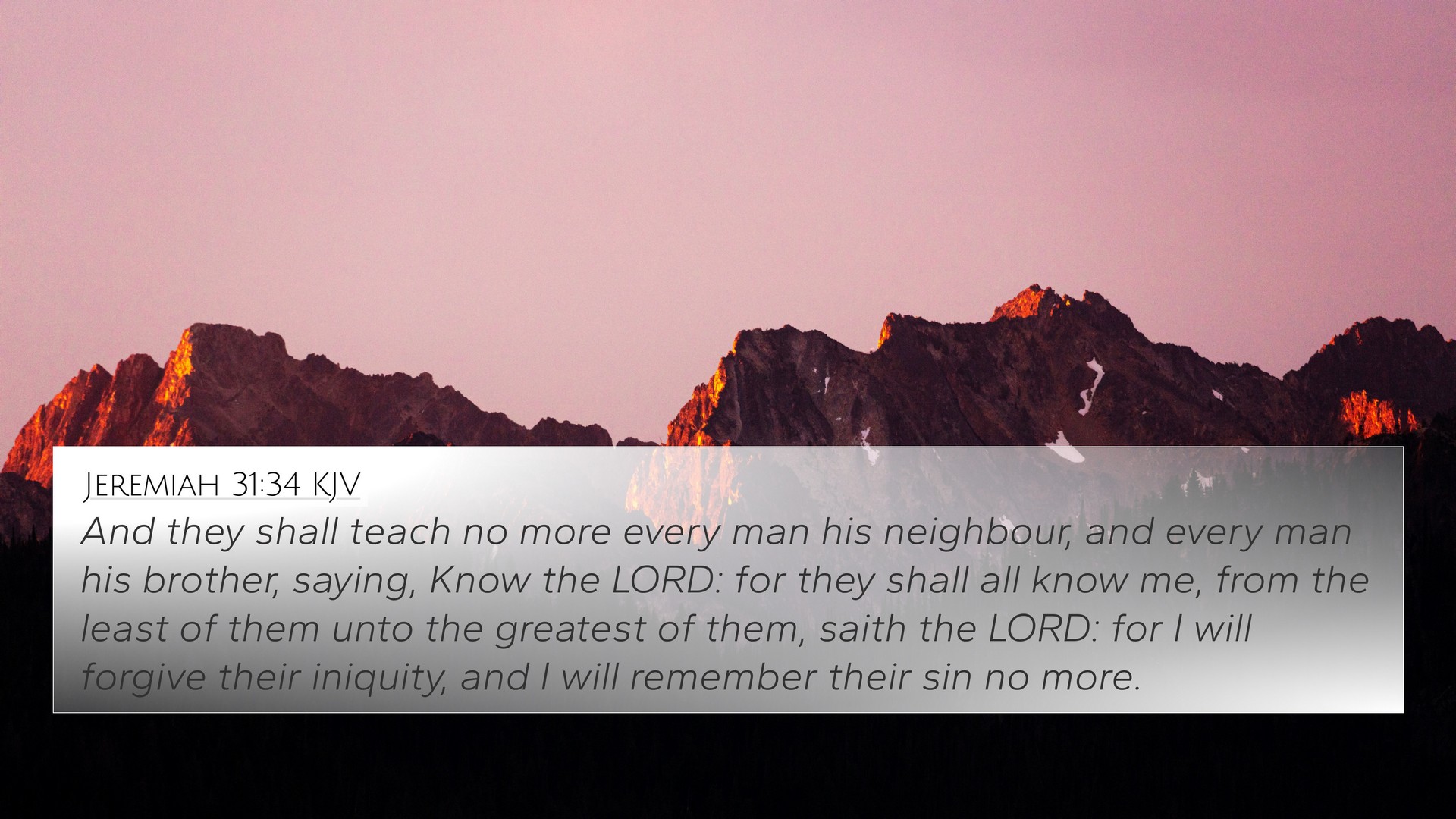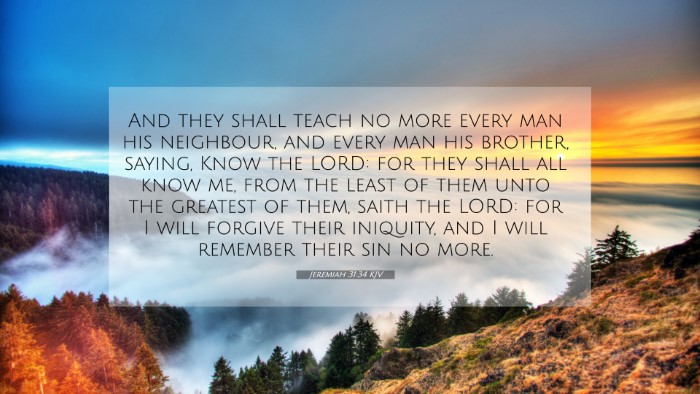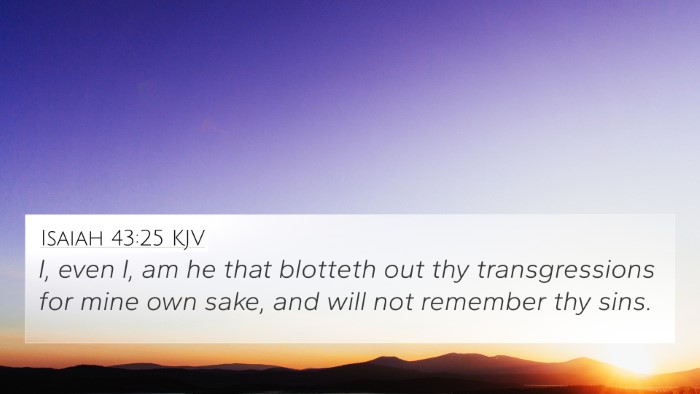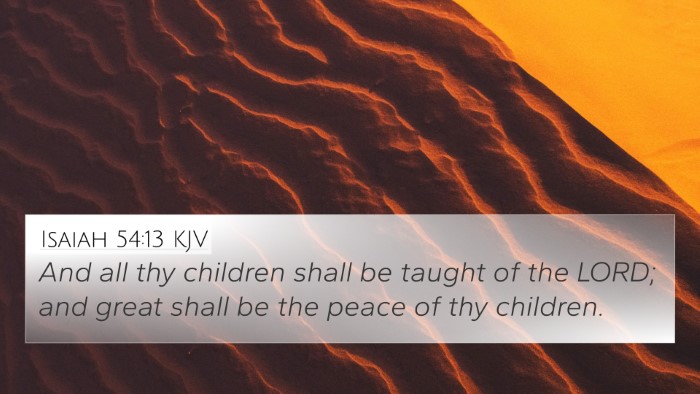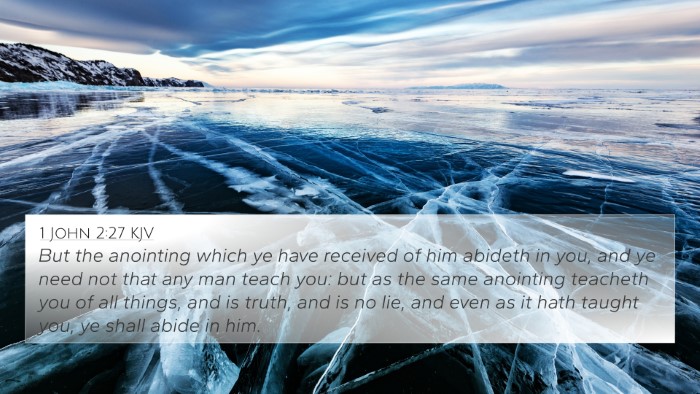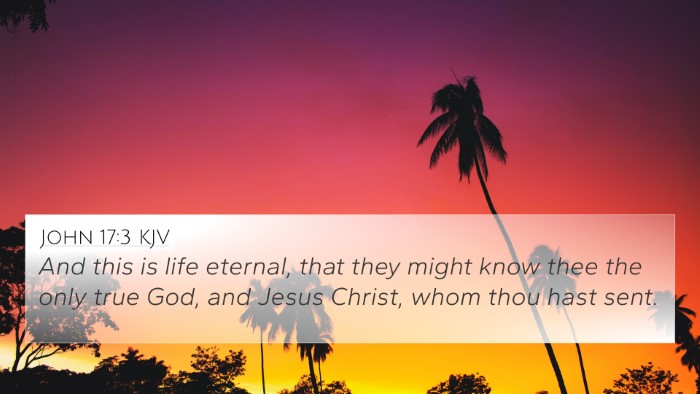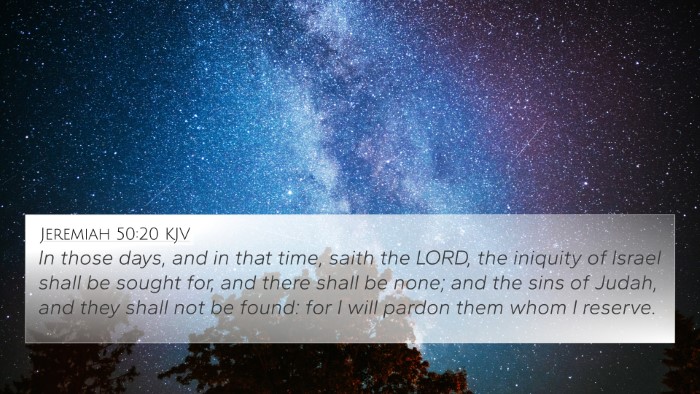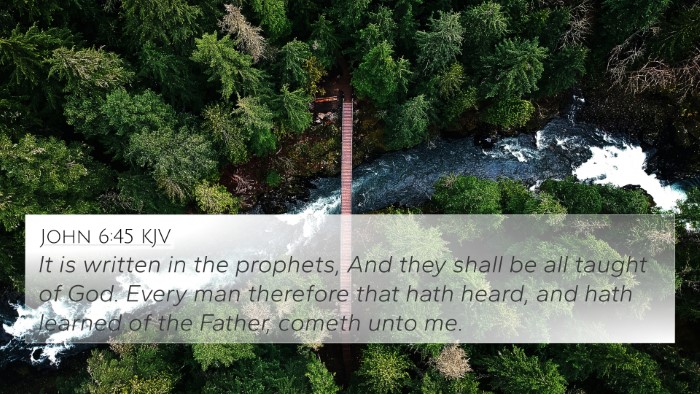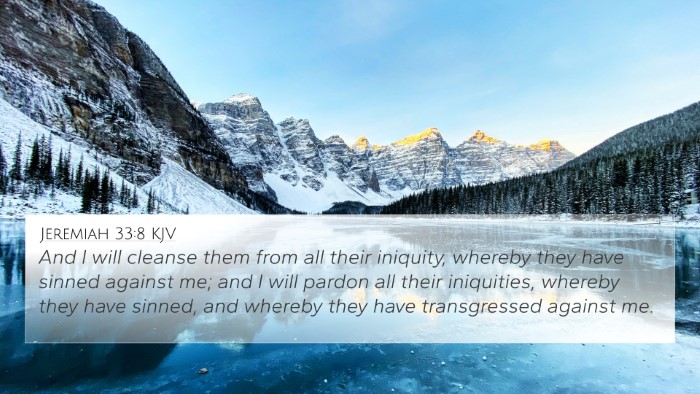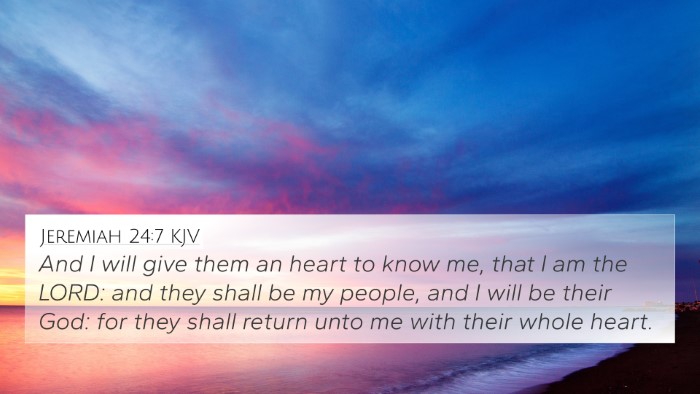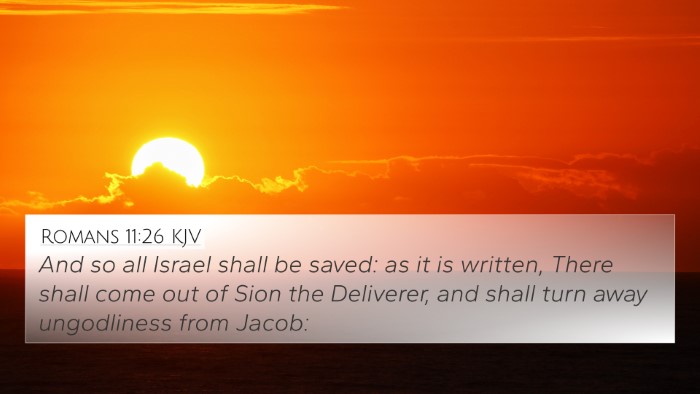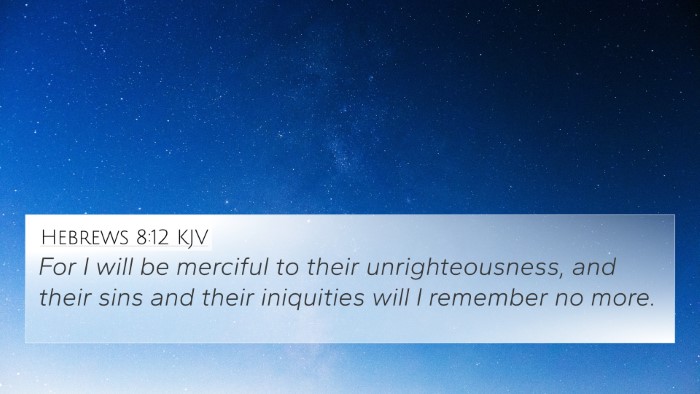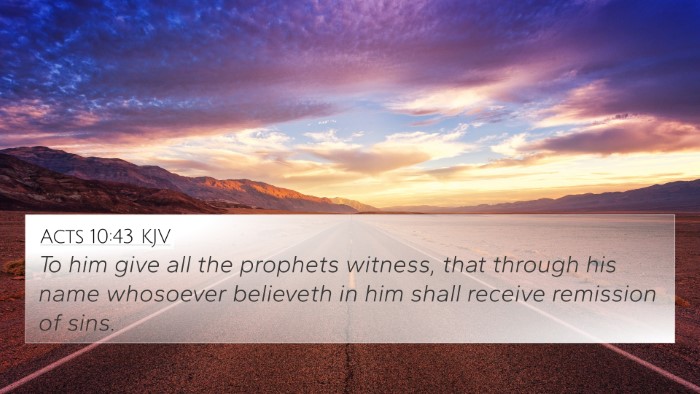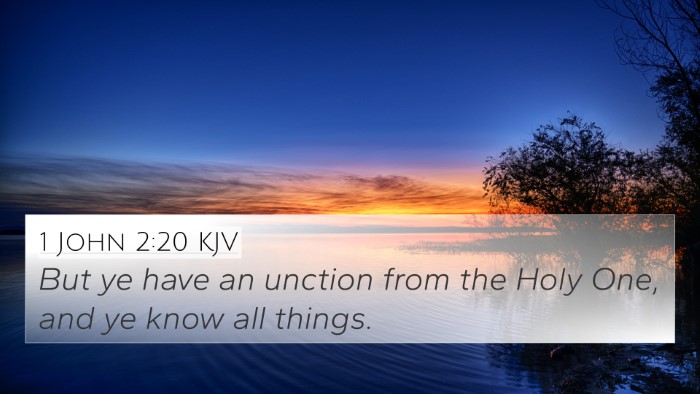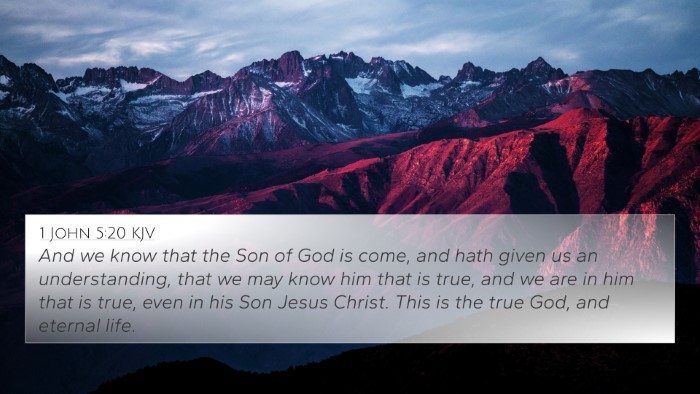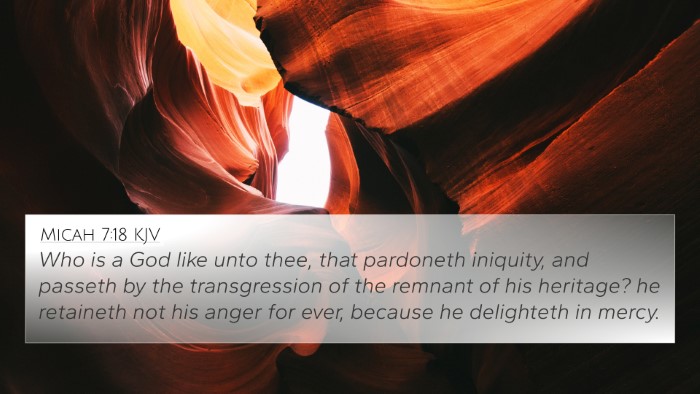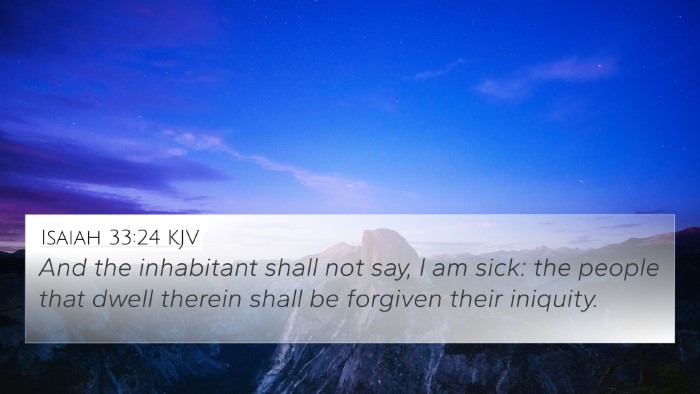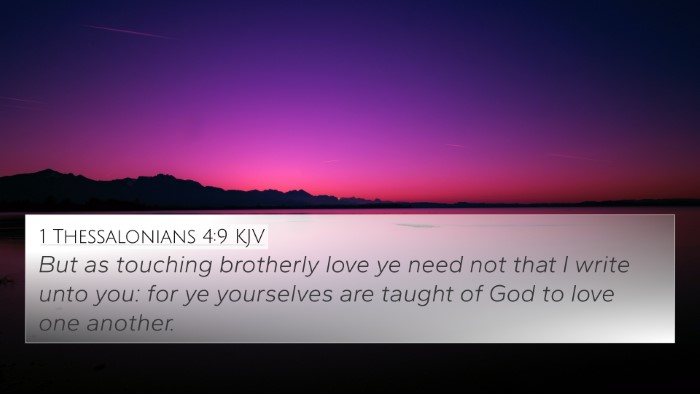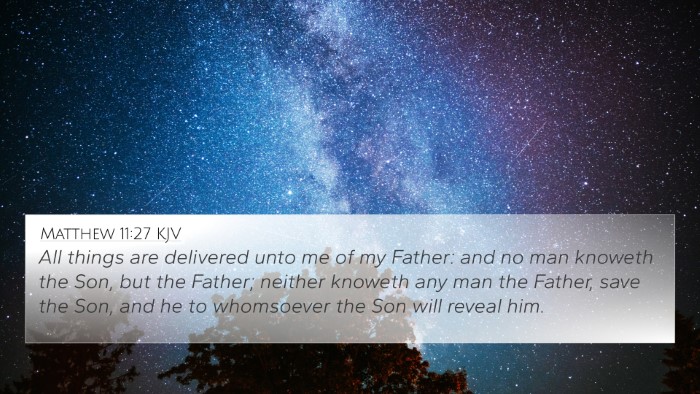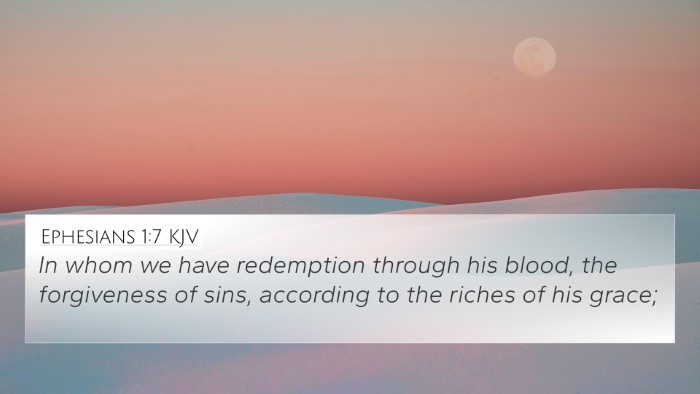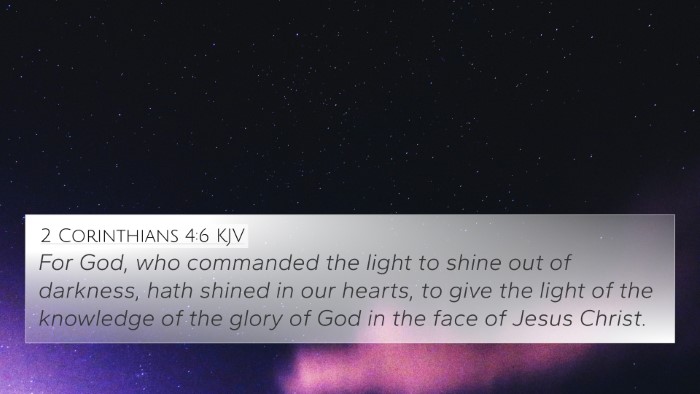Meaning and Interpretation of Jeremiah 31:34
Jeremiah 31:34 (KJV): "And they shall teach no more every man his neighbor, and every man his brother, saying, Know the Lord: for they shall all know me, from the least of them unto the greatest of them, saith the Lord: for I will forgive their iniquity, and I will remember their sin no more."
Summary of Insights
This verse speaks of a time in the future when God's relationship with His people will be transformed. It focuses on the internal knowledge of God that all believers will possess, thereby removing the need for external prompting to acknowledge Him.
Key Themes and Concepts
- Transformation of Knowledge: In the New Covenant, knowledge of the Lord would be written on the hearts of His people.
- Universal Access: Unlike the previous covenant where knowledge was limited, all people would have direct access to God.
- Forgiveness of Sins: The verse highlights the crucial aspect of divine forgiveness, where God promises to remember sins no more.
Commentary Insights
Matthew Henry’s Commentary
Henry notes that this prophecy foreshadows the coming of Christ and the establishment of the New Covenant. It emphasizes that in this new relationship, God will impart a knowledge of Himself directly to the hearts of believers, removing the need for intermediaries. The phrase "I will forgive their iniquity" indicates that God's forgiveness will be comprehensive, which is fundamental to salvation.
Albert Barnes’ Notes
Barnes highlights that this declaration indicates a profound change in the covenant relationship between God and His people. The knowledge of God would not be something taught externally but inherent within individuals. He remarks on the significance of "from the least of them unto the greatest," which suggests that no one would be excluded from this intimate relationship.
Adam Clarke’s Commentary
Clarke emphasizes the radical nature of this new understanding of God's law. He suggests that the knowledge of God will be universally understood, transcending social and economic distinctions. Clarke also discusses the historical context, linking Israel's future spiritual renewal to the advent of Christ, who establishes this new covenant.
Cross-References for Jeremiah 31:34
This verse connects with several other scriptures that reinforce its themes. Here are relevant cross-references:
- Hebrews 8:10-12: Discusses the establishment of a new covenant and parallels the promise of writing God's laws on hearts.
- Ezekiel 36:26-27: Relates to God giving a new heart and spirit to His people.
- 2 Corinthians 3:6: Speaks of the ministry of the Spirit and writes the law on hearts.
- Matthew 11:28-30: Invites all to come to Christ, supporting universal access to God's knowledge.
- 1 John 2:27: Indicates that the anointing from the Holy Spirit teaches believers directly.
- Romans 11:26: Affirms that all Israel will be saved, emphasizing God's promises to His people.
- John 17:3: Defines eternal life as knowing the only true God, reinforcing the knowledge theme.
Thematic Connections
The thematic connections in Jeremiah 31:34 reveal a profound shift in the divine-human relationship. The internalization of God's knowledge signifies a transition from a mediated understanding of God to a deeply personal and direct relationship.
Interpreting the Themes
In studying this verse and its cross-references, one can enhance their understanding of the New Covenant's implications. The themes of forgiveness, knowledge, and universal access echo throughout both the Old and New Testaments, revealing a cohesive narrative of God's redemptive plan for humanity.
Conclusion
Jeremiah 31:34 encapsulates the essence of God's promise to His people. Through the exploration of its meaning and connection to other Scriptures, believers can grasp the profound truth that God desires a close, personal relationship with everyone. This verse invites deeper exploration into the ways in which God interacts with humanity and the transformative power of His forgiveness and knowledge.
